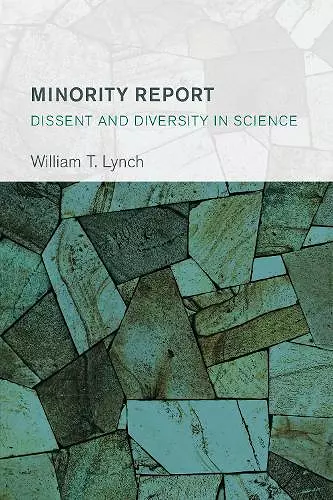Minority Report
Dissent and Diversity in Science
Format:Hardback
Publisher:Bloomsbury Publishing PLC
Published:16th Oct '20
Currently unavailable, and unfortunately no date known when it will be back

This book explores the importance of supporting minority views in science, using Minority Report as a lens to analyze real-world implications.
In Minority Report, the narrative delves into the complexities of how minority perspectives are often overlooked in scientific discourse. Drawing parallels with Philip K. Dick’s iconic story, the book explores the concept of 'precogs,' individuals who can foresee future events and whose insights reflect the importance of diverse viewpoints in decision-making processes. The protagonist's journey to uncover the suppressed 'minority report' highlights the challenges faced by those whose opinions diverge from the mainstream consensus. This fictional framework serves as a springboard for examining real-world implications in Science and Technology Studies.
The analysis presented in Minority Report questions the traditional notion that scientific communities operate under a singular paradigm. Instead, it emphasizes the existence of competing research programs that contribute to the development of knowledge. By synthesizing insights from various scientists, the book illustrates how statements of scientific consensus are formed and the potential pitfalls that arise when minority views are disregarded. This critical examination is supported by numerous case studies that underscore the necessity of giving voice to diverse opinions within the scientific realm.
Ultimately, Minority Report advocates for a more inclusive approach to scientific inquiry, arguing that minority perspectives deserve recognition and support. This call for acknowledgment not only enriches the scientific landscape but also fosters innovation and progress by ensuring that all voices are heard and considered in the pursuit of knowledge.
The interdisciplinary field of science, technology, and society (STS) was launched in the 1980s to challenge perceived overreach of scientific authority. As STS scholars honed their critical tools, however, assaults on scientific authority gradually became associated with the same conservative, rapaciously capitalist interests the field of STS had first set out to critique. Championing scientific dissent, possibly undercutting scientists' expertise, and emphasizing contingencies in the scientific process became problematic for STS scholars to pursue. The subsequent reckoning has motivated Lynch to develop tools for determining when minority scientific positions should and should not be taken seriously. Lynch's argument follows Bruno Latour, whose Down to Earth (CH, May'19, 56-3759) attempted to put STS on a new footing. The result is a thorough and thoughtful overview of the past half-century of thinking on scientific consensus and dissent, articulated through cases ranging from dietary science to climate change. The book proposes useful conceptual tools to help sort the minority wheat from the minority chaff. Scholars in STS and adjacent fields will find this a rewarding and provocative read… Recommended. Graduate students and faculty. * Choice Reviews *
ISBN: 9781786612373
Dimensions: 227mm x 160mm x 27mm
Weight: 680g
380 pages